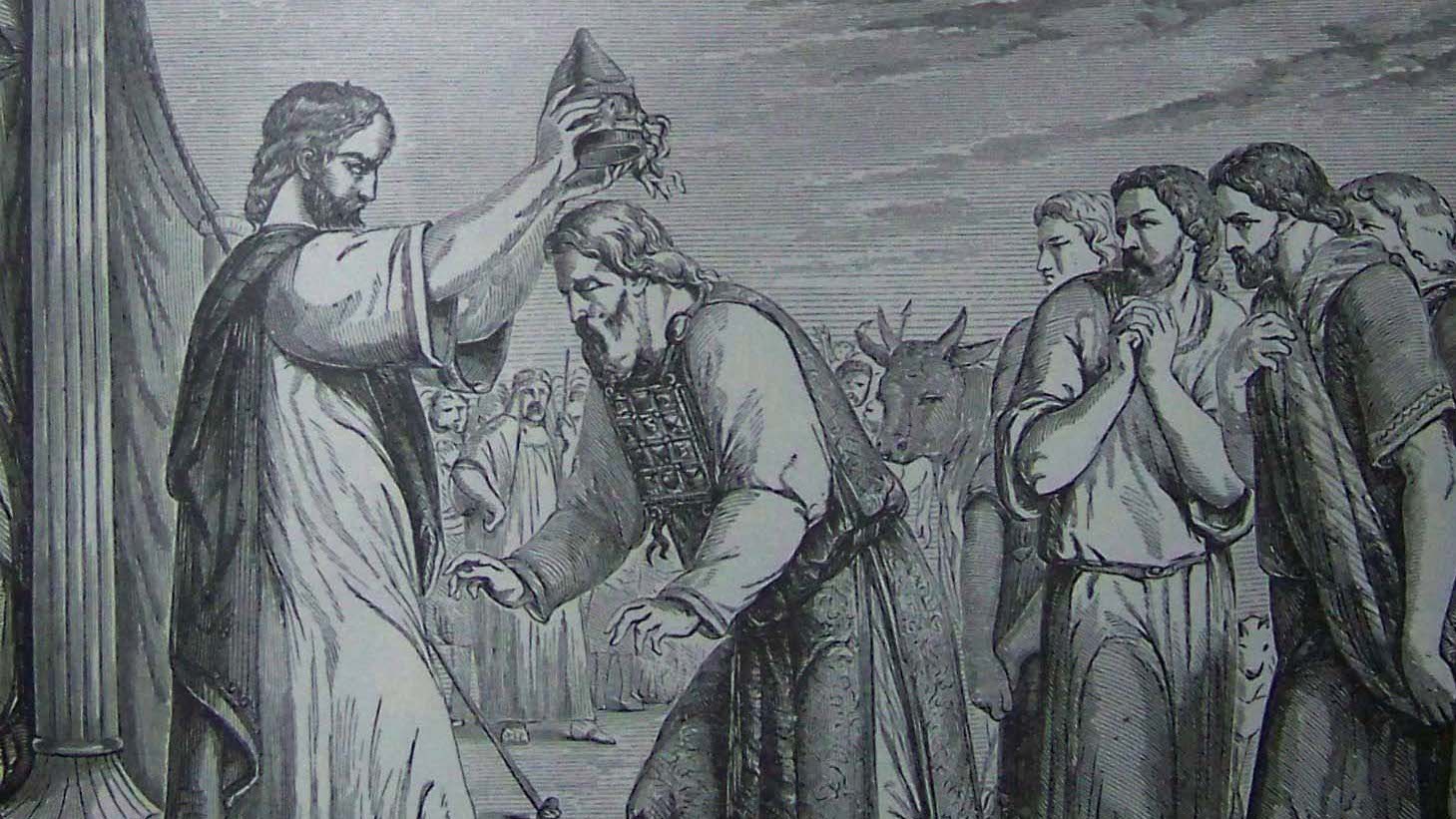Aaron, the first High Priest, was the founder and ancestor of the Israelite priesthood. His mother, Jochebed, the Egyptian-born daughter of Levi, married her nephew Amram son of Kohath, and gave birth to three children: Miriam, the eldest; Aaron; and Moses, the youngest, who was born when Aaron was three years old.
The Bible does not say anything about Aaron’s birth, his early life, or his upbringing. It states that he married Elisheba daughter of Amminadab, of the tribe of Judah, with whom he had four sons: Nadav, Avihu, Eleazar, and Ithamar. His brother-in-law, Nahshon, was a direct ancestor of King David.
Aaron is first mentioned in the Bible when God, angry that Moses was reluctant to accept the mission to free the Israelites from the Egyptian oppression, told him that Aaron was a good speaker and that he would be Moses’ spokesman.
The Story of Passover
Aaron’s eloquent speeches to Pharaoh were reinforced by the miracles that he performed with his walking stick, changing it one time into a serpent and another into blossoms and almonds. Also, by stretching out his walking stick at the request of Moses, he brought on the first three plagues: blood, frogs, and lice; and, in cooperation with Moses, he produced the sixth plague, boils, and the eighth plague, locusts.
It is significant that when he performed his wonders, it was not by virtue of any innate ability or individual initiative but only by divine command, mediated through Moses. The two brothers were already old men–Aaron was 83 years old, and Moses was 80–when Pharaoh finally yielded to their request, and let the Israelites go.
After the march out of Egypt, Aaron was no longer a central figure in the events but only a secondary player at Moses’ side. He didn’t play any important part in the crossing of the Red Sea, the songs of victory hymns, or the water crisis at Marah. He reappeared later in connection with the incident of the manna.
In the Wilderness
During the battle that the Israelites fought against the Amalekites, Aaron, together with Hur, supported Moses’ hands stretched upward to ensure victory. Later, again with Hur, Aaron acted as deputy for Moses when his brother climbed Mount Sinai to receive the two stone tablets of the Law.
During Moses’ prolonged absence on the mountain, Aaron yielded to the pressure of the people and made with their jewelry a golden calf that became a cause of apostasy. Despite his involvement in this incident, he was neither punished nor disqualified from the priesthood. The people, on the other hand, were harshly punished when the Levites, by order of Moses, killed about 3,000 of the idol worshipers.
Although Aaron did not take any part in the construction of the portable sanctuary, he and his sons were appointed priests and consecrated into that office by Moses. During the consecration ceremonies, two of his sons, Nadab and Abihu, died when they burned forbidden incense before the Lord, a tragic loss that Aaron bore in silent resignation.
Once a year, on the Day of Atonement, Aaron was allowed to go into the Sacred Sanctuary, the holiest part of the Tent of Testimony, bringing his offering.
The Bible records one incident of friction between the brothers when Aaron sided with their sister, Miriam, against Moses’ preeminence, using as a pretext Moses’ Cushite wife. God punished Miriam by making her skin leprous, white as snow. She was shut out of the camp for seven days, until her skin healed. Aaron, again, was not punished.
Aaron and Moses were the target of a serious revolt led by their cousin, the Levite Korah, who claimed that all the members of the congregation were equally holy. The earth split open and swallowed Korah and his followers.
To demonstrate the special status of the priesthood and the Levites, Moses placed a stick from each of the tribes in the Tent of Testimony and left them there overnight; the following day, the stick representing the tribe of Levi, which had Aaron’s name inscribed on it, was the only one sprouting blossoms and almonds.
Stopped from Entering the Promised Land
On one occasion, the people complained that there was no water and that they would die of thirst. God told Moses to take the stick that was in front of the Ark; assemble the community; and, in front of them, speak to a rock. Water would flow from it.
Moses and Aaron assembled the whole community in front of the rock. But this time, Moses could not control his anger and his frustration with the constantly complaining Israelites. He lost his patience and shouted, “Listen, you rebels, shall we get water for you out of this rock (Numbers 20:10)?” Then, he raised the stick and struck the rock twice with it. Out came a great stream of water, and the people and the animals drank their fill.
God reproved Moses and Aaron, saying, “Because you did not trust Me enough to affirm My sanctity in the sight of the Israelite people, therefore you shall not lead this congregation into the land which I have given them (Numbers 20:12).”
Thus Aaron never lived to see the Promised Land. He died on Mount Hor, near the southern end of the Dead Sea when he was 123 years old. The Israelites mourned him for 30 days, the same number of days that they mourned when, some time later, Moses died. Aaron was succeeded as High Priest by his son Eleazar.
Reprinted with permission from Who’s Who in the Hebrew Bible (The Jewish Publication Society).
Moshe
Pronounced: moe-SHEH, Origin: Hebrew, Moses, whom God chooses to lead the Jews out of Egypt.



